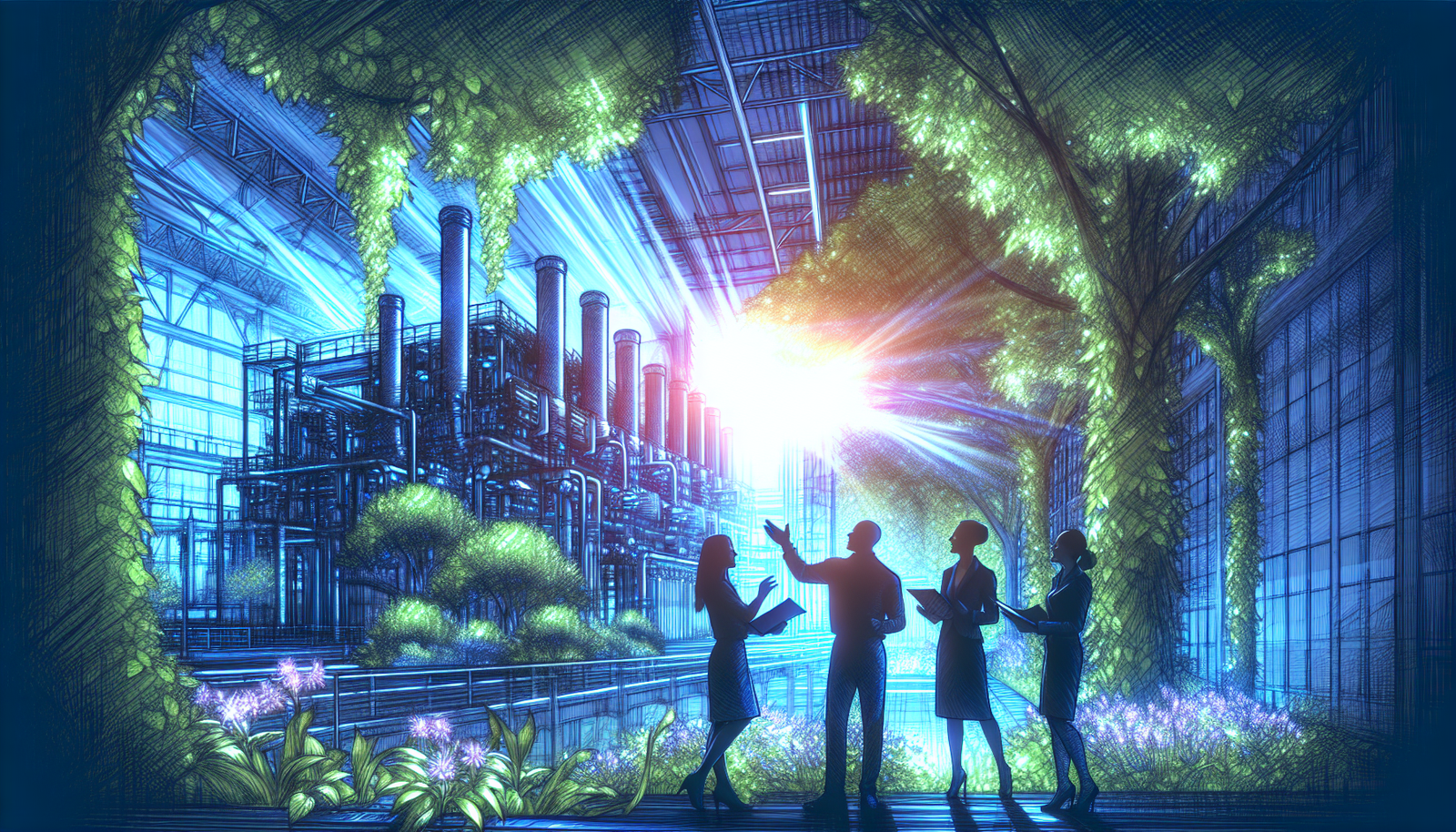Considering the establishment of new factories by TSMC in Europe is a significant strategic turning point. This choice demonstrates a deep commitment to the development of semiconductor technology on the European continent, addressing modern geopolitical challenges. With this initiative, the creation of thousands of jobs on European soil becomes an imminent reality, bringing renewed economic dynamism. TSMC’s arrival, a key player in the industry, underscores the urgency of a *strategic autonomy* in the production of critical components.
TSMC: The Rise of Semiconductor Manufacturing in Europe
The Taiwanese giant of semiconductors, TSMC, has recently kicked off the construction of its first factory on European soil, located in Dresden, Germany. This project, marked by a symbolic groundbreaking, represents a significant milestone for the company as well as for the European technology industry.
Economic Impact and Job Creation
With the implementation of this new factory, TSMC expects to create about 2,000 jobs in the region. This initiative represents an opportunity not only for local hiring but also for the development of specific skills related to chip manufacturing. Local authorities hope to strengthen the technological ecosystem of Saxony.
Strategic Partnerships and Government Support
The project has garnered interest from government officials, such as Thierry Breton, European Commissioner for the Internal Market. His presence at the groundbreaking ceremony underscores the steadfast support of European institutions for this new establishment. The goal is to increase local production to reduce dependence on external suppliers.
Timeline and Commissioning
The construction of the Dresden factory is a promise made by TSMC last year. This site is expected to be operational by 2027, which reflects a massive investment in the development of manufacturing infrastructure. The commissioning of this factory is eagerly anticipated by industry players.
A Strategic Choice for the Company
TSMC is facing a growing demand for electronic chips, driven by sectors such as automotive, smart devices, and AI. The decision to establish itself in Europe demonstrates a willingness to address the local market while diversifying its operations outside of Asia. This strategic choice aims to strengthen the resilience of the supply chain.
Global Context and Competition
Globally, competition among semiconductor manufacturers is becoming increasingly fierce. TSMC’s investments must be viewed in the context where companies like Samsung are also investing in the miniaturization of semiconductors. The pursuit of ever more advanced technologies, such as 3 nm or even 2 nm processors, presents an intense technological battleground.
Future Perspectives
This development in Dresden marks a turning point for TSMC’s strategy in Europe and could lead to other similar projects on the continent. The announcement of the Ukrainian semiconductor factory heralds a future where Europe could truly become a major player in the field of advanced technologies.
Frequently Asked Questions about TSMC’s Establishment in Europe
What are TSMC’s objectives in establishing factories in Europe?
TSMC aims to strengthen its presence in the European market, meet the growing demand for semiconductors, and reduce its dependence on Asian supply chains.
Where will TSMC’s first factory in Europe be located?
TSMC’s first European factory will be located in Dresden, Germany, a strategic choice due to the presence of a developed technological ecosystem.
When does TSMC plan to commission its first European factory?
The factory is expected to be operational by 2027, allowing teams to install the necessary equipment and train staff.
How many jobs will be created due to this establishment in Europe?
TSMC plans to create approximately 2,000 new jobs in Dresden with the establishment of its new factory.
What impact will this factory have on the semiconductor industry in Europe?
This establishment could help increase the semiconductor production capacity in Europe and strengthen the region’s autonomy in this strategic sector.
Has TSMC received government support for its establishment in Europe?
Yes, TSMC is collaborating with European governments to obtain support, both financial and logistical, regarding the construction of its factories.
What types of semiconductors will be manufactured in the Dresden factory?
The Dresden factory is expected to focus on the production of advanced technologies, including cutting-edge semiconductors for consumer electronics and industrial applications.
Does TSMC have other establishment projects in Europe beyond the one in Germany?
Yes, TSMC is considering other potential projects in different European countries, but these will depend on various factors, including government support and economic viability.
How will TSMC’s establishment in Europe affect semiconductor prices in the region?
The creation of local production capacity could help stabilize prices and meet demand, thereby reducing import costs for Europe.
What are the environmental challenges associated with building a TSMC factory in Europe?
TSMC will need to comply with strict environmental regulations in Europe, integrating sustainable practices to minimize the ecological impact of its operations.






